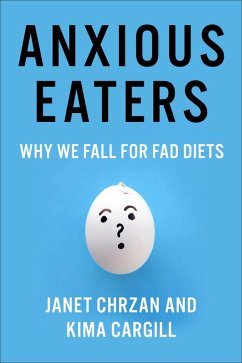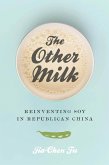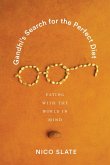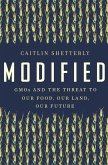What makes fad diets so appealing to so many people? How did there get to be so many different ones, often with eerily similar prescriptions? Why do people cycle on and off diets, perpetually searching for that one simple trick that will solve everything? And how did these fads become so central to conversations about food and nutrition?
Anxious Eaters shows that fad diets are popular because they fulfill crucial social and psychological needs-which is also why they tend to fail. Janet Chrzan and Kima Cargill bring together anthropology, psychology, and nutrition to explore what these programs promise yet rarely fulfill for dieters. They demonstrate how fad diets help people cope with widespread anxieties and offer tantalizing glimpses of attainable self-transformation. Chrzan and Cargill emphasize the social contexts of diets, arguing that beliefs about nutrition are deeply rooted in pervasive cultural narratives. Although people choose to adopt new eating habits for individual reasons, broader forces shape why fad diets seem to make sense.
Considering dietary beliefs and practices in terms of culture, nutrition, and individual psychological needs, Anxious Eaters refrains from moralizing or promoting a "right" way to eat. Instead, it offers new ways of understanding the popularity of a wide range of eating trends, including the Atkins Diet and other low- or no-carb diets; beliefs that ingredients like wheat products and sugars are toxic, allergenic, or addictive; food avoidance and "Clean Eating" practices; and paleo or primal diets. Anxious Eaters sheds new light on why people adopt such diets and why these diets remain so attractive even though they often fail.
Anxious Eaters shows that fad diets are popular because they fulfill crucial social and psychological needs-which is also why they tend to fail. Janet Chrzan and Kima Cargill bring together anthropology, psychology, and nutrition to explore what these programs promise yet rarely fulfill for dieters. They demonstrate how fad diets help people cope with widespread anxieties and offer tantalizing glimpses of attainable self-transformation. Chrzan and Cargill emphasize the social contexts of diets, arguing that beliefs about nutrition are deeply rooted in pervasive cultural narratives. Although people choose to adopt new eating habits for individual reasons, broader forces shape why fad diets seem to make sense.
Considering dietary beliefs and practices in terms of culture, nutrition, and individual psychological needs, Anxious Eaters refrains from moralizing or promoting a "right" way to eat. Instead, it offers new ways of understanding the popularity of a wide range of eating trends, including the Atkins Diet and other low- or no-carb diets; beliefs that ingredients like wheat products and sugars are toxic, allergenic, or addictive; food avoidance and "Clean Eating" practices; and paleo or primal diets. Anxious Eaters sheds new light on why people adopt such diets and why these diets remain so attractive even though they often fail.
Dieser Download kann aus rechtlichen Gründen nur mit Rechnungsadresse in A, D ausgeliefert werden.









